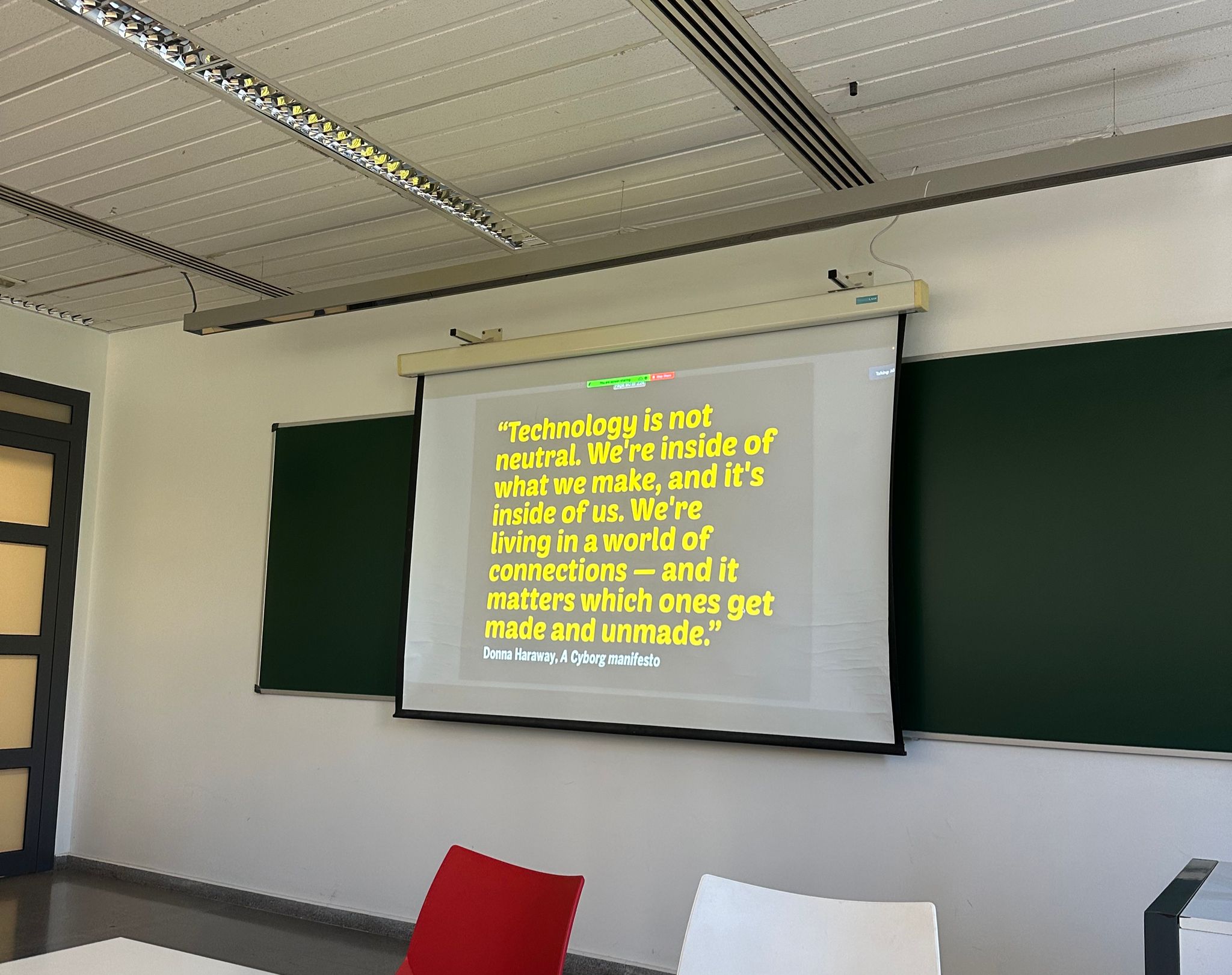Self Assessment: 9.5
Looking back at the 2 day seminar led by Ariel Guersenzvaig on Design, Technology and Ethics I would say that I was challenged and introduced to new topics that I really found captivating to listen to. The course I feel was engaging in a way that I could question my own values and the way the world currently engages with different moral questions.
For me the introduction of the technosphere, "the realm of technology — machines, factories, computers, cars, buildings, the railway, all mobility infrastructure etc.", was interesting as it made me realize that in one way or another we are all touched by technology. There is no aspect in daily life as I know it, and many others as well, that doesn't incorporate technology. I am not thinking about the high-tech solutions we think of now, but more in the broader sense. It really intrigued me that there is a unintended morality behind technology. Technology cannot be seen as a neutral entity for me. It is so entangled in life that it means that by definition groups have been focussed on or excluded, be it intentional or not. This is also due to the historical context of a lot of the current technology we use. Consider the data of AI or the way screening of people is done in airports, all these technologies are well meant in origin, but often the design behind or the information inputted is already biased to a certain group of people.
“Design and tech shape perception and, therefore, action. In turn social dynamics shape the design, adoption and use of tech.”
Another thing that I found that I particularly liked was the way that design can be a way of shifting human behavior. However, at the same time with this one must be careful as to which extent is this okay and at what point does a design become coercive. As someone who focuses a lot of my designs on shifting habits to more sustainable patterns the talks we had around this subject led me to question my own design practice. Or perhaps a better way to say this would be cautioned me moving forward to try and understand the ethics of my designs more deeply moving forward.
The exercise we did during the second day of the class I felt gave a practical spin to all the theory we had discussed to that point on. With my group we focussed on VR and what the ethical implications there might be of this technology. For me VR is something I would say is mostly positive, but the discussion we had within the group showed that there are negative implications of the technology. This showed me a bit more of how there are truly unseen impacts that a design can have.
Finally look back at this course I would say I was engaged throughout the two days and that the information I learned will help me build on my designs in the future. Ariel truly taught me that ethics is not a question of if but more how within the realm of design. With this I mean that it is always a part of design but as designers we need to try and understand how it is a part of our designs. With this in mind I would say the quote that stuck with me the most in relation to this is:
"Design is concerned with how things ought to be"
-Herbert Simon
In a way there will always be social, political and environmental impacts of a design when trying to alter the current system. With this also comes the moral question if it is truly worth the possible negative affects it might have. For my final research on the way we can help shift habits of people to sustainable reduction through big data technologies, this course has taught me how I need to think the potential consequences of my design and how in a broad system this design might alter society. Moving forward I will try to fall back on the information of this seminar to try and understand the ethical implications of my project.

